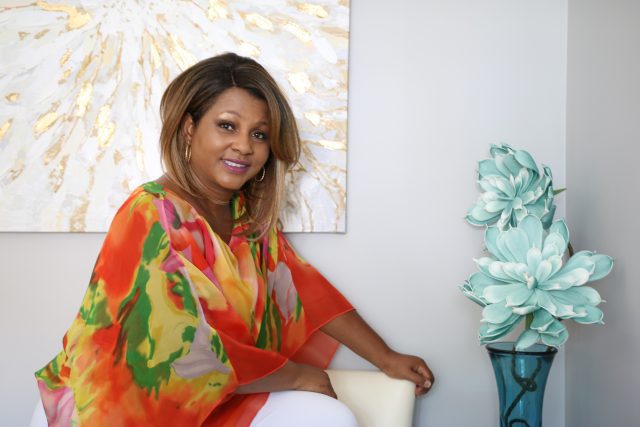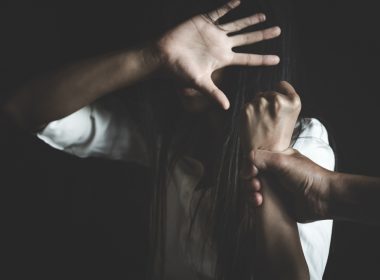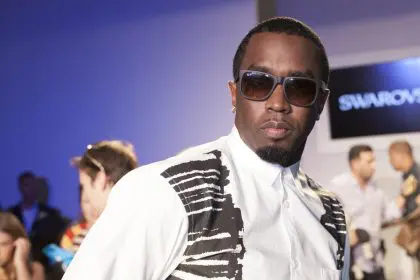
According to InvisibleChildren.org, 1 in 4 girls and 1 in 6 boys will be sexually abused before they turn 18. The effects of child molestation can carry into adulthood. Sheryl Hatwood, the president and founder of Endless Voice Productions LLC, is familiar with the struggle of finding your voice to speak out against abuse.
Hatwood is a survivor of child molestation, domestic violence and suicide. At the age of 12, she was molested by a family friend. She then became pregnant in her teens, got married and was abused by her now ex-husband.
Hatwood was able to escape the terror of the situation once her ex-lover was arrested and deported by immigration when she lived in Canada. The troubles of her past and the pressure to make it on her own almost tipped Hatwood over the edge. Feeling like she “had nothing,” she almost committed suicide.
Her faith enabled her to get past the thought of suicide, and she is still healing by sharing her story with her play “The Wounded Soul,” which will be performed Oct. 4-6 at the American Theatre of Actors in Manhattan. Now living in Westchester County, Hatwood reveals her thoughts on mental health, overcoming obstacles, being the voice for survivors and more in an exclusive interview with rolling out.
Why is it essential for you to share your story about domestic violence and being molested as a child?
The importance is to get rid of the shame. I just thought it was a great way to transport my testimony to someone else to be viewed as an overcomer. Sometimes you are in domestic violence and you feel stuck. The tendency creates low self-esteem, low self-confidence, and then you have to find some way to look inside yourself to start again to overcome.
Why did you decide to title your play “The Wounded Soul?”
I decided to entitle the play “The Wounded Soul” because it’s a poem I wrote when I was 16 years old, and I was struggling with a lot of inner conflicts. Unbeknownst to my family, I was a victim of child molestation. I had a lot of internal struggles that made me make the wrong choices because I never spoke about the hurts that were inside.
What are some lessons that you learned through your healing process?
Learn to love yourself. When you learn to love yourself, don’t compromise your values to be someone else because then you dishonor who you are and then you’re easily manipulated. Also, don’t let anyone treat you [as] less than you’re worth. But you have to understand who you are for that to happen as well.
You’ve survived abuse and a suicide attempt. Why is it important to address suicide and mental health in the Black community?
I, myself, even in my younger years, associated mental health issues [with] being mentally delusional. I didn’t stop to weigh the options that there are different degrees of mental health. We need to educate ourselves more on mental health issues and address our bodies and healing holistically.
What is the mission and overall goal for your company, Endless Voice Productions LLC?
My mission is the external view of the inner voice, and what I mean by that is to give a voice to those hidden issues that people do not want to discuss. I think theater provides a great option and a great platform to present the information a different way.
What is the biggest reward you have received since starting Endless Voice Productions?
I think [it’s] the women that I’ve been able to honor who have gone through their struggles and have turned around to help other people. After the debut of “The Wounded Soul” last year, I was so overwhelmed by the emotion of the women coming to me. My reward was in knowing how I’ve helped other people find their voice that was silenced years ago and by celebrating the Woman’s Worth Awards in New York, Connecticut, and New Jersey in March.
How have you’ve been emotionally and mentally since working on your play?
I had the mindset to start, and then when I started I had so many feelings because I had to relive everything again in detail to translate the emotion to the audience. So it was an emotional rollercoaster, but it was at the same time an emotional cleansing because after I got to the end of the script and then I presented the play, I’ve found new freedom.
Why do you think families in the Black community don’t discuss the topic of abuse and suicide?
It’s because of the shame. We have this persona [that we] have to be strong. We can’t show our hurts, cry or show weakness. When the play first debuted last year, I had a lot of families and women and men that came up to me and said, “You helped my family so much.”
I do feel that it’s ignorance, too, because when you don’t know about something, you don’t know how to treat it. So ignorance does play a huge role in why we haven’t addressed it. And education.
What do you want to accomplish with the play and company in the next 10 years?
I will have the play in film format, and I hope to have the book done within the next six years as well. My goal is to reach as far as I can, and even if I sell let’s say 500 books and only one life gets touched, that’s the beauty in it for me.














